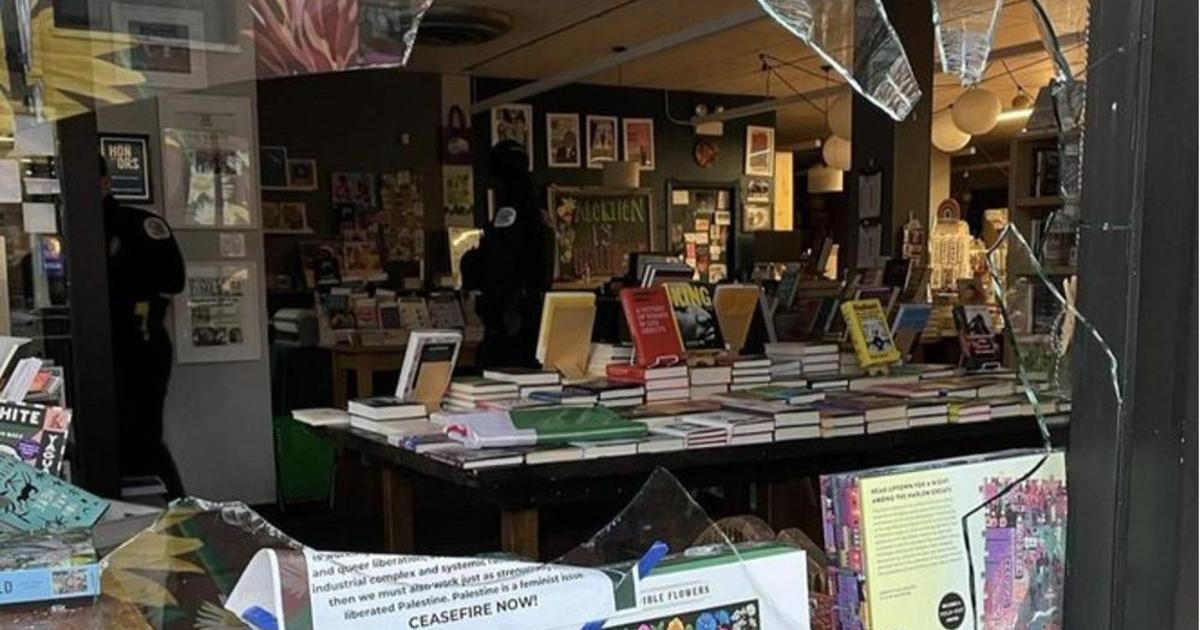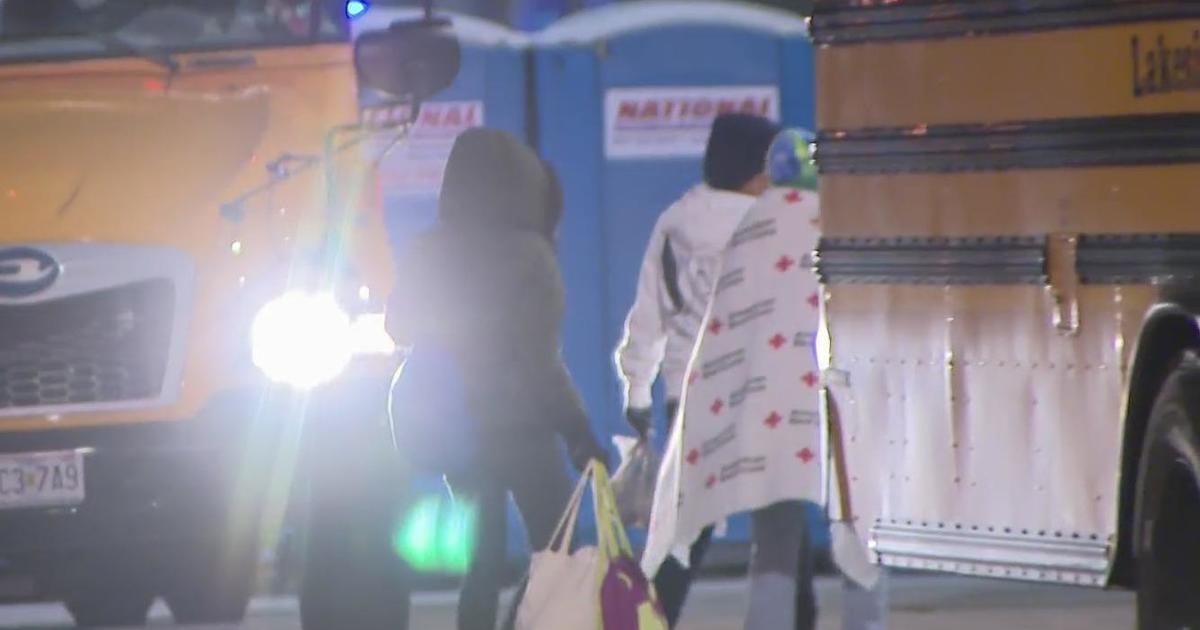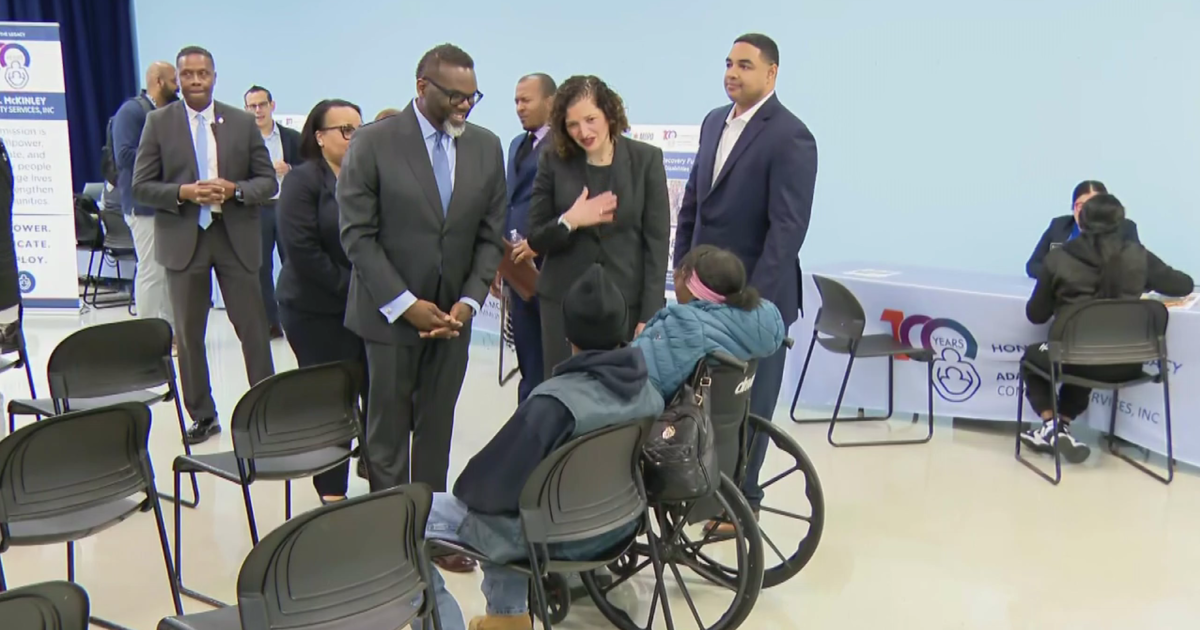City Council Committee Approves Ordinance To Delay Chicago Recreational Marijuana Sales Until July
by Todd Feurer, CBS Chicago web producer
CHICAGO (CBS) -- A City Council committee on Tuesday approved an ordinance that would delay recreational marijuana sales in Chicago until July, despite concerns from the mayor's office that the measure also might effectively prohibit existing medical marijuana dispensaries from operating for the first half of the year.
The proposal by Ald. Jason Ervin (28th), who chairs the City Council Black Caucus, was approved by the Committee on Contracting Equity and Oversight by a vote of 10-9.
Ald. Carrie Austin (34th), who chairs the committee, cast the deciding vote. She said she voted for the delay to stand with fellow members of the Black Caucus.
"My colleagues felt that it wasn't enough input. So I'm going to go with them. They have been the ones that have been meeting with the governor, as well as the mayor. So I'm taking their instructions of that's the delay," she said.
The Black Caucus is upset that the 11 existing medical marijuana companies in Chicago that will be allowed to immediately begin recreational sales on Jan. 1 are owned almost exclusively by white men. They also argue that state law does not include sufficient standards to assure African Americans and Hispanics benefit from the recreational marijuana industry, even though minorities were most hurt by the decades-long war on drugs.
"It's very critical that our communities have the parity and equity that is necessary for everybody to participate. This program started off, in our opinion, on the wrong foot, and we're trying to correct that. We're hopeful that the state will make some actions that make this equitable to all communities in our state. Not just one select group of individuals," Ervin said.
Mayor Lori Lightfoot has opposed the effort to delay recreational pot sales and said she has been working with the Black Caucus since October on their concerns, such as amending the city's zoning rules for marijuana sales to give aldermen more control over where pot shops can operate, and decreasing the penalties for illegal pot possession.
The mayor said delaying legal weed sales will have several unintended consequences, such as shortchanging a "seed money" program for new marijuana businesses that would be funded from taxes on existing firms, fueling an illegal black market in Chicago, and pushing back the start of recreational pot sales until a time when police will be preparing for a traditional summer spike in violence.
"I have repeatedly asked the members of the Black Caucus to devise a strategy that addresses equity. Instead, we have primarily been met with a litany of complaints, but no tangible solutions. Crossing our arms and walking away is a tactic, not a strategy and is not only unacceptable but irresponsible," the mayor said in a statement. "We have a tremendous opportunity to come together to do the work necessary to fulfill our vision of truly equitable legalization. Cannabis will be legalized across the State of Illinois starting on Jan. 1, and I have no intention of Chicago being left behind. It is unfortunate that the Black Caucus has chosen to remain on the sidelines."
Paul Stewart, the mayor's marijuana advisor, told aldermen the city has been helping minority applicants with the licensing process for recreational marijuana in order to maximize their chances of setting up their own shops.
"We are hopeful that the state will allow those individuals to be licensed through the scoring mechanism that's in place, that gives additional points to social equity qualified applicants," he said.
The mayor's office also provided aldermen with a memo saying the governor supports various moves to address the concerns of the Black Caucus about the need for a bigger minority stake in the cannabis industry, but that wasn't enough to sway Ervin and his allies.
"We have no assurances from anybody. This is the city saying this. The state are the actors here, and they have not given us anything in writing, given us any commitments that I'm willing to stake our community on," he said.
The mayor's office also raised concerns that the move to delay recreational cannabis sales would go further than aldermen intended. During the committee meeting on Tuesday, Assistant Corporation Counsel Redeatu Kassa said the city's Law Department is concerned that the way Ervin's ordinance is worded also would prohibit already medical marijuana sales for the first six months of the year.
Ervin brushed aside that concern, stating that the city does not have the authority to rescind any medical marijuana licenses that have been issued by the state.
"I think you're trying to create a problem that does not exist. I think you're trying to cloud the issue," Ervin said. "We have no ability to stop a state-issued dispensary from moving forward."
However, Ald. Brendan Reilly (42nd) -- who is not on the committee but exercised his authority as the council's president pro tem to vote at the meeting -- said just because the city can't revoke a medical marijuana license issued by the state doesn't mean it can't block licensed companies from operating in city limits.
"They may be licensed, but we're saying licensed or not, you can't operate," Reilly said. "My concern is we're about on the precipice of passing an ordinance that is technically deficient."
Reilly said he also fears the city could open itself up to lawsuits from the marijuana industry if it blocks recreational sales for six months, because the City Council has already approved zoning rules for the industry, and companies already have made investments toward getting licenses based in part on that vote.
Lightfoot's floor leader, Ald. Gilbert Villegas (36th) said it appears supporters of the delay have the votes to pass the ordinance, although he said it is a close vote, and that could change before Wednesday.
"I think that, right now, the votes are there, yes," he said. "Looking at the roll calls, I think right now the votes are there to have a delay."
Villegas said delaying recreational weed sales would be a mistake.
"The fact that you're delaying it is going to have unintended consequences," he said.
One provision of the state law allowing for recreational pot in Illinois is that taxes collected from existing marijuana firms will help fund an incubator program that would provide seed money for aspiring businesses to get started in the industry. If the city does delay recreational marijuana sales, there will be less money going into that incubator program.
Villegas also noted the delay could cost the city approximately $5 million in tax revenue.
The ordinance will go to the full City Council for a possible vote on Wednesday. However, any two aldermen can move to delay a final vote on the measure until the next council meeting, which currently is scheduled for Jan. 15, two weeks after legal weed sales would have begun across the state. The mayor also could veto the ordinance if it passes at any point, and aldermen would need 34 votes to override her.



